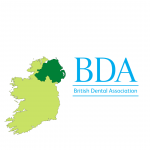The British Dental Association has warned officials that planned cuts will devastate a service already on the brink.
In an open letter to Peter May, Permanent Secretary at the Department of Health, representatives of every field of practice in Northern Ireland stress “If the axe falls on dentistry – indeed if there is a failure to provide needed investment – this service faces collapse. The price will be paid by patients across Northern Ireland.”
Dental leaders say Northern Ireland faces ‘a three-tier system’, where those who can’t get registered for NHS care but can’t afford to pay privately are left without routine access, short of accessing emergency services.
The letter cites bleak evidence from the frontline, with the crisis on the high street being felt acutely across community and secondary care:
- Oral cancers: Red flag referrals for suspected oral cancers from high street dentists to secondary care set at 2 weeks are currently running at 8.5 weeks in some areas
- An access crisis in primary care: Last year the BBC found 90% of practices were not accepting new adult patients and 88% were not accepting child patients. Activity levels have only recovered to approximately 80% of pre-COVID levels. A workforce crisis is fuelling this access crisis, combined with unviable fees to dentists for providing NHS care. 60% of dentists intend to increase their amount of private work. 41% of practice owners intend to decrease their health service work. This picture is set to worsen.
- Multi-year waiting times: We have 5-6 year waiting times for routine assessment for Oral & Maxillo-facial services; 219-312 weeks Hospital Orthodontic waiting times for patients with facial deformities; currently reliant on a surgeon from Wales to come over every two months to treat children with cleft lip and palate. Cuts could mean waiting times increasing further, and some treatments being no longer available in Northern Ireland
- Widening Health inequalities: NI residents are twice as likely to have filled teeth as their counterparts in England, and children are three times as likely to have multiple teeth extracted under General Anaesthetic. Children in our most deprived communities are least likely to be even registered with a dentist (63% registered in most deprived areas vs 80% least deprived). Health inequalities will widen further if, as a result of reduced funding access to the full range of dental services is reduced.
- Plummeting Morale: COVID has had an enormous impact on the dental profession. 63.6% of community dentists – treating the most vulnerable in society – say their morale is ‘low/very low’, with a key factor being the ongoing patient backlog. Existing difficulties accessing theatre space is having an impact on the vulnerable groups these dentists serve.
- A growing pay gap: Additional in-year funding will in effect not be available for pay uplifts here, rather it will be prioritised to settle the £297m debt. Northern Ireland has a shameful track record of delivering late pay uplifts. The possibility of no uplift would have a devastating impact on recruitment and retention and the financial sustainability of practices. In hospitals, Dental Core Trainees (DCT) have a pay gap of up to 25% compared to other UK nations. This is having a huge impact on recruitment with 9 of 22 DCT posts currently unfilled.
Michael O’Neill, Head of General Dental & Ophthalmic Services wrote to dentists on 3 May that work is ongoing to secure savings and raise revenue across health budgets.
In the absence of government, the BDA is calling on MLAs to step up, and protect the future of NHS dentistry across Northern Ireland.








